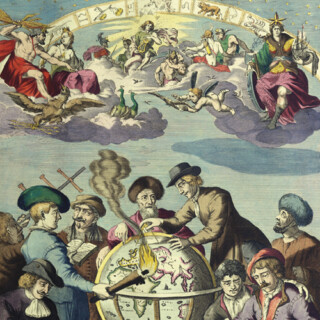Alexander Dalrymple
(
1737 - 1808
)
The first hydrographer to the British Admiralty, Alexander Dalrymple is best known for his researches regarding a great Southern Continent, as well as being a proponent of the search for the Northwest Passage (thereby influencing Vancouver’s survey). His research and theories about “Terra Australis” led to his appointment by the Royal Society as commander of the 1768 expedition, a decision which was later countermanded by the Admiralty who installed Captain Cook instead. Dalrymple himself led major explorations of the Pacific and his surveys and hydrographical study revolutionised chart-making.
Through family connections, Alexander Dalrymple was made a writer and sent to Madras where he arrived in May 1753. He was afforded access to Robert Orme’s library and grew increasingly fascinated with the Company’s activities in Burma, Indo-China and Borneo, so much so that he turned down a promotion that he might undertake a voyage of his own. “In February 1759 Pigot freighted the Cuddalore (Captain George Baker) for Dalrymple ‘to attempt to discover a new route to China through the Molucca Islands and New Guinea’. Alexander Dalrymple made three voyages between 1759 and 1764 to the Philippines, Borneo, and Sulu. In the first, based at Canton (Guangzhou), he reconnoitred Borneo, the Philippines, and the coast of Cochin-China. For the second, in the London in 1762, he had James Rennell as companion for a voyage to Sulu and Balambangan, where he had obtained for the company a grant of land. In Madras in 1763 he went through the formality of resignation, confident of reinstatement, to return to London to promote a trading settlement at Balambangan. En route to Canton for passage to England he became provisional deputy governor at Manila for a short period in April 1764, in the aftermath of the treaty of Paris, and he arrived in London in the summer of 1765 …” (ODNB).
Alexander Dalrymple is also remembered for being passed over for James Cook to lead the 1768 transit of Venus expedition and subsequently search for Terra Australis, the Great Southern Continent, which was a subject of immense interest to him. Indeed, he was convinced that an immense continent lay to the south of 28 ° -40 ° S which culminated in the 1767 publication An Account of the Discoveries Made in the South Pacifick Ocean Previous to 1764.







